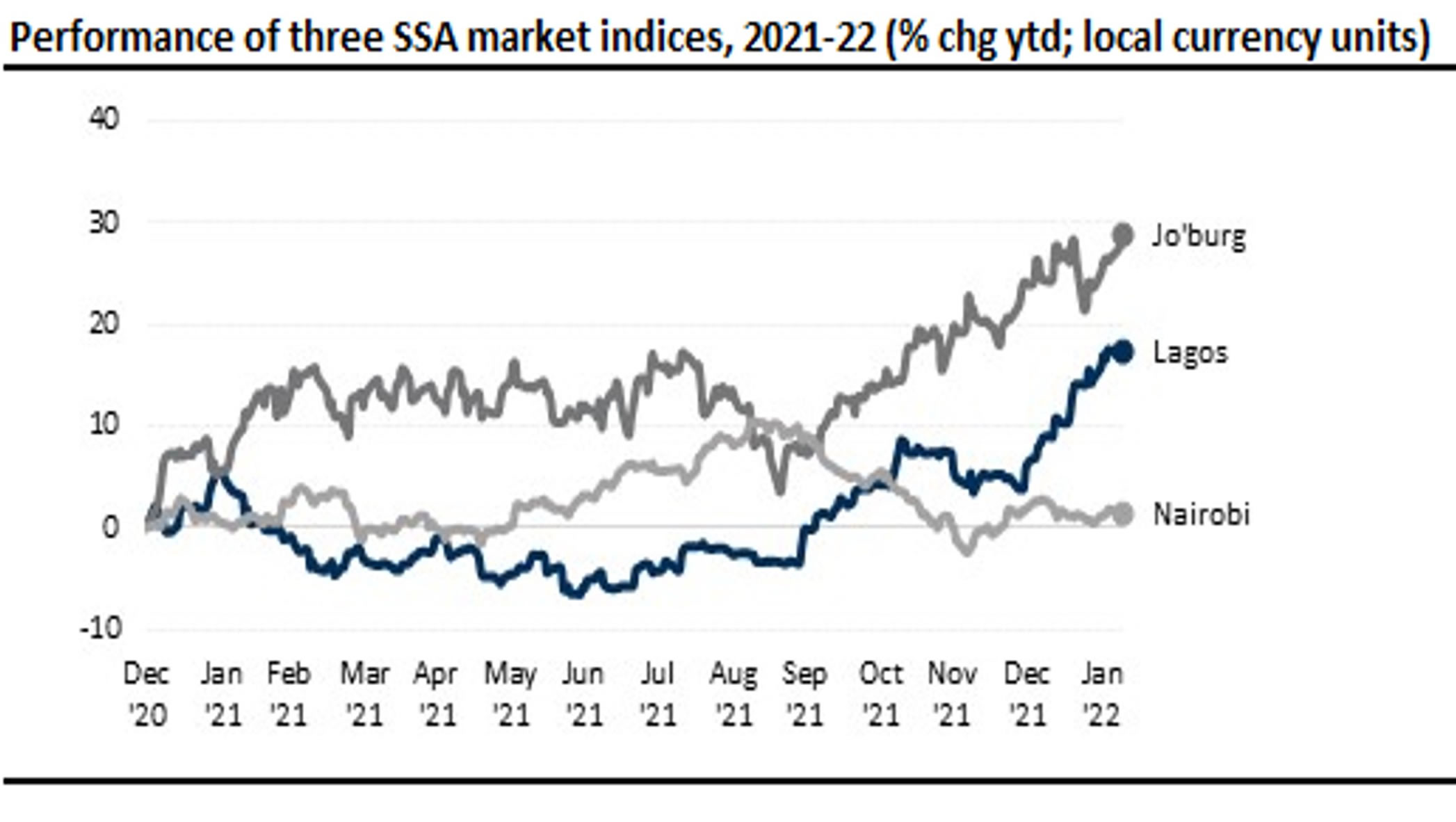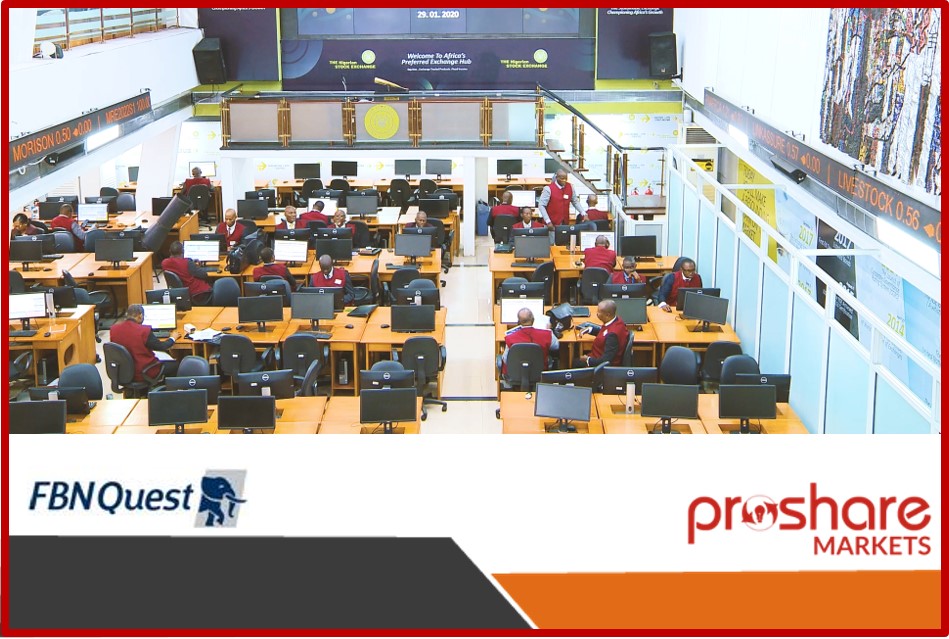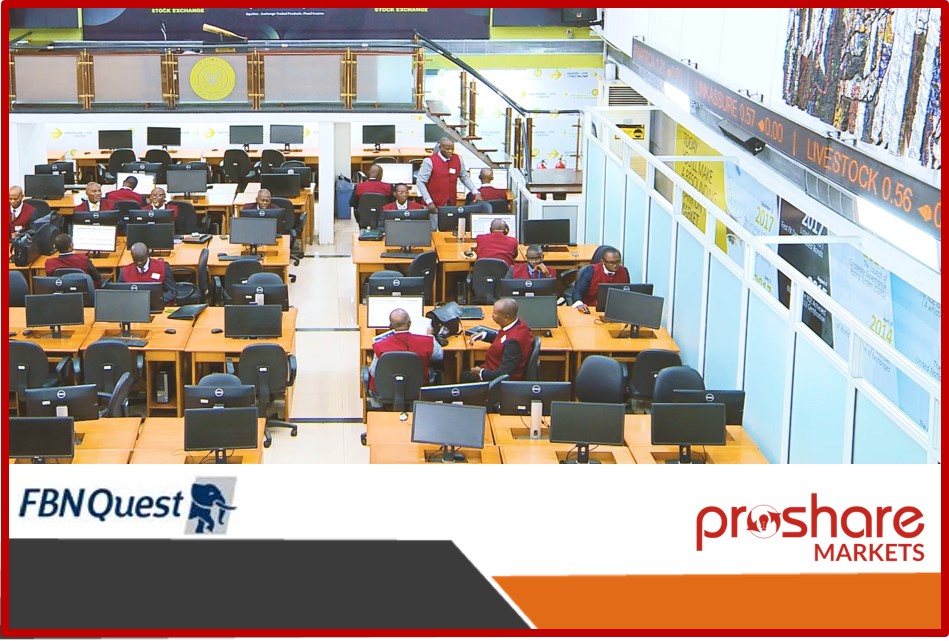Today, we turn our attention to Nigeria’s stock exchange (NGX ASI), by comparing its performance with those of the two major bourses we track in Sub-Saharan Africa (SSA) - the Nairobi Stock Exchange 20 index (NSE20), and the Johannesburg Stock Exchange (JSE, Joburg). On a year-to-date basis (ytd), the Lagos bourse is still ahead of its peers, delivering a return of c.14.3%, compared with negative performances of c.-11.2% and -10.7% for Joburg and Nairobi respectively. However, the fortunes of the three stock exchanges shifted slighlty in Q3 2022. While the Nairobi exchange recouped some of its ytd losses during Q3 ‘22, with a return of c.+6.5%, the Lagos and Joburg bourses delivered negative returns of -5.4% and -3.8% over the same period.
That said, the three stock exchanges performed poorly in September. While Lagos and Nairobi posted negative returns of -1.6% and -1.9% respectively, Joburg performed worse, with a loss of -5.2%.
The NGX’s performance m/m continues to be largely reflective of investor apathy towards equities. This led to a mild sell-off in a few bellwether names like Airtel Nigeria and Seplat Energy, and more significant losses in some consumer and bank names such as Nestle Nigeria, Guinness Nigeria, and GT Bank Holding Company.
A key factor behind the apathy towards equities is the effect of monetary tightening by the central bank which has resulted in elevated yields on fixed income securities.
Losses by the Joburg exchange are likely reflective of a sell-off in the shares of resource-related firms due to the significant weighting of such commodity-based mining firms on the exchange. Notably, a sharp rise in the value of the US dollar in recent months has hurt the prices of metals like gold.
Due to its heavy concentration, the performance of the Nairobi bourse is largely dictated by the share price movement of Safaricom, which accounts for around 50% of the exchange’s market capitalisation.
Looking ahead, the MPC's further rate increase of 150bps to 15.5%, which was implemented last week, is anticipated to have a negative impact on equity market performance and trigger a rotation out of stocks into fixed income instruments
 Lagos, NG • GMT +1
Lagos, NG • GMT +1











 207 views
207 views










 Sponsored Ad
Sponsored Ad
 Advertise with Us
Advertise with Us









